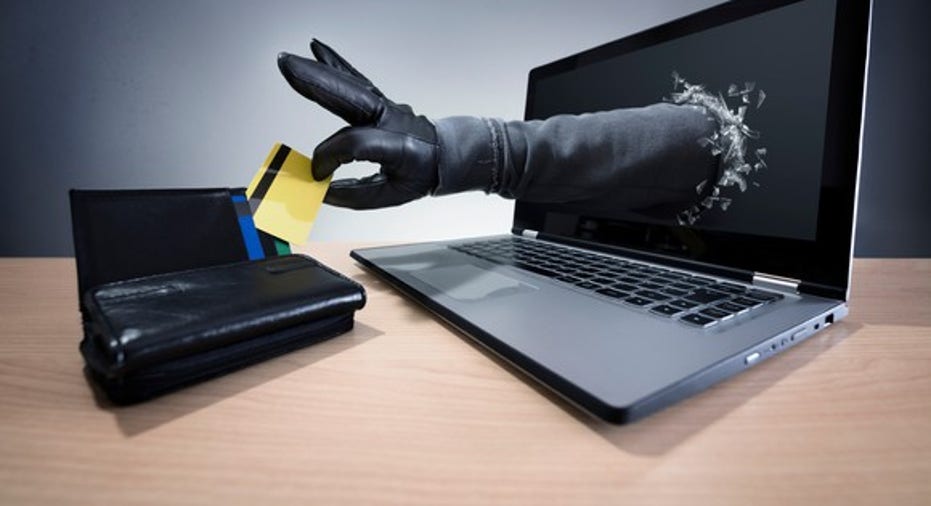Credit Card Fraud Is Up 41% -- Don't Be the Next Victim!

Image Source: Getty Images
According to Federal Trade Commission (FTC) data, there were nearly 70,000 complaints of credit card fraud in 2015. This represents a staggering 41% rise over 2014, and is the highest fraud rate since before the great recession in 2009. Here's what you need to know, and how you can avoid becoming a victim.
An alarming increase in fraud -- and it may be even worse where you live
As I mentioned, credit card fraud rose at an alarming rate in 2015. The increase was the largest in 10 years, and is due to an increased number of data breaches, as well as a surge in the overall popularity of electronic payments, according to a study by ValuePenguin.
Furthermore, in some states, fraud is significantly worse than average. Florida had the highest per-capital fraud rate in 2015 with 42.5 complaints per 100,000 residents, and has seen fraud rise by 130% since 2011. California, Washington D.C., and Nevada weren't far behind.
On the other hand, certain states had relatively low fraud rates. On the low end, South Dakota has a per-capita complaint rate of less than one-fifth of Florida's, and other states such as West Virginia, Iowa, and Idaho also had low complaint rates.
Keep in mind that these rates only include complaints made to the FTC. The actual rate of credit card fraud is likely much higher. For example, about 31.8 million U.S. consumers had their credit cards breached in 2014 alone, resulting in nearly $8 billion in fraud-related losses.
What can you do about it?
Whether you live in a high-fraud or low-fraud area of the country, there's still a significant risk of becoming a victim. Obviously, the increased usage of chip-based credit cards will help curb fraud caused by data breaches at retailers that use the new payment terminals. However, your card is still vulnerable online, over the phone, at ATMs, and at retailers that don't yet use chip technology.
With that in mind, here are a few tips to keep your credit card information safe.
- Don't give your credit card information over the phone.
- Use retailers with chip readers when available.
- Use credit cards for non-chip purchases instead of debit cards. In general, credit cards have better liability protection.
- Beware of phishing scams, which have surged in recent years. This is where you'll receive a bogus email or visit a fake website intended to steal your personal information. One common phishing scam leads you to a legitimate-looking IRS website and tries to obtain your credit card or identity information by claiming you owe back taxes.
- Keep an eye on your card while you're paying. Don't keep it in view any longer than you have to -- put it back in your wallet immediately after completing the transaction.
- Be mindful of skimmers at ATMs and gas stations. Skimming devices (small card readers placed in or on a payment terminal to steal your credit card information) can be placed on any non-chip payment terminal, but are most common on payment terminals that aren't constantly monitored. And, the technology behind these devices has evolved to the point where they're nearly undetectable.
If you become a victim
Obviously, the priority is doing everything you can to avoid becoming a victim of credit card fraud. However, no matter how well you prepare and how advanced anti-fraud technologies become, there is always a chance that you could become a victim.
If your credit card information has been compromised, let your card issuer(s) know about it as soon as possible. In the vast majority of cases, you won't be held responsible for unauthorized charges, and your issuer will send you a new card with a new number, effectively cancelling your old card while keeping your account open. It's also a good idea to file a complaint with the FTC, as this can help the government detect fraud patterns.
If you think your identity is at risk -- for example, if you think your Social Security number has been compromised -- that's another issue. You can read about what to do in those caseshere.
The bottom line is that there is no 100% foolproof way of avoiding becoming a victim of credit card fraud, besides not having any credit card or debit card accounts at all. However, if you take appropriate steps to protect yourself, you can minimize the chances of having to deal with fraudulent use of your credit.
The $15,834 Social Security bonus most retirees completely overlook If you're like most Americans, you're a few years (or more) behind on your retirement savings. But a handful of little-known "Social Security secrets" could help ensure a boost in your retirement income. For example: one easy trick could pay you as much as $15,834 more... each year! Once you learn how to maximize your Social Security benefits, we think you could retire confidently with the peace of mind we're all after.Simply click here to discover how to learn more about these strategies.
Try any of our Foolish newsletter services free for 30 days. We Fools may not all hold the same opinions, but we all believe that considering a diverse range of insights makes us better investors. The Motley Fool has a disclosure policy.



















